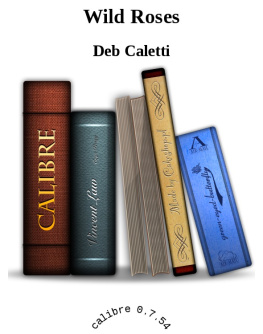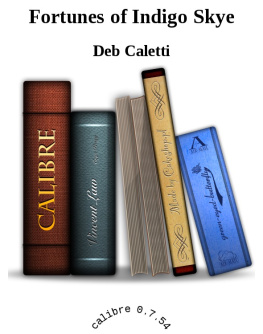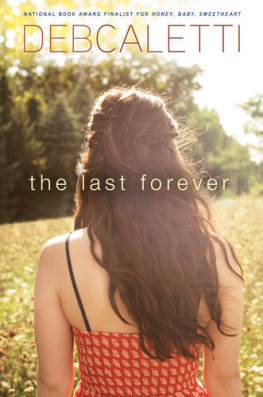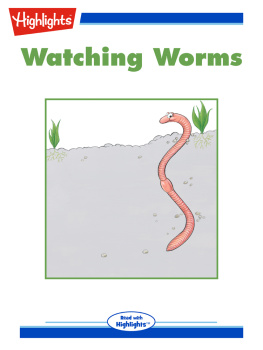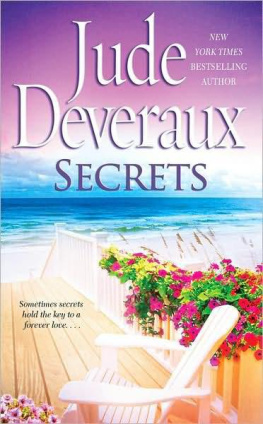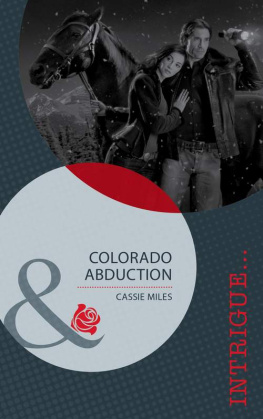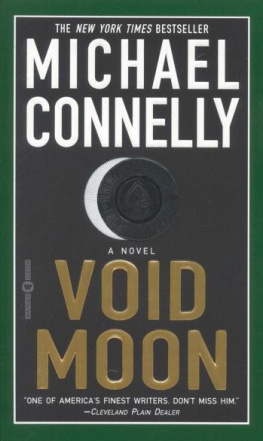If there are images in this attachment, they will not be displayed. Download the original attachment
Wild Roses
Deb Caletti
ACKNOWLEDGMENTS
Thank you to my dear friends and partners--Ben Camardi and Jen Klonsky. It's a privilege to be part of your intelligence, humor, and insight. Thanks as well, to Jenn Zatorski, Leah Hays, Sam Schutz, and all the fine folks at Simon & Schuster--you guys are the best. Gratitude also to Kirsty Skidmore and Amanda Punter and U.K. Scholastic.
Doug Longman, music teacher extraordinaire--thanks for essential information, and for your dedication to teaching. And to all those organizations that assist writers and, more importantly, get the word out about books, my appreciation and admiration. Thank you Artist Trust; National Book Foundation; PNBA, with special thanks to Rene Kirkpatrick; California Young Reader Medal Program; PSLA; International Reading Association; YALSA, and to libraries everywhere, particularly King County Library System. Librarians are awesome, and KCLS is home to my favorites.
Anne Greenberg; the beautiful and singular Muriel Diamond; "Magic" friends; Rick Young; and the Flo Villa houseboat gang--life is happier with you in it. Love and endless thanks to my clan in Virginia, California, Chicago. And to my new family in Denver, Seattle, Phoenix, L.A., and Mineral Point--oh, lucky girl am I.
Finally, deep and forever love and gratitude to Evie Caletti, Paul and Jan Caletti, Sue Rath and family. And to my Sam and Nick, who make every day a present.
Chapter One
To say my life changed when my mother married Dino Cavalli (yes, the Dino Cavalli) would be like saying that the tornado changed things for Dorothy There was only one other thing that would impact my life so much, and that was when Ian Waters drove up our road on his bicycle, his violin case sticking out from a compartment on the side, and his long black coat flying out behind him.
My stepfather was both crazy and a genius, and I guess that's where I should start. If you've read about him recently, you already know this. He was a human meteor. Supposedly there's an actual, researched link between extreme creativity and mental illness, and I believe it because I've seen it with my own eyes. Sure, you have the artists and writers and musicians like my mom, say, who are talented and calm and get things done without much
fuss. The closest she gets to madness is when she gets flustered and calls me William, which is our dog's name. But then there are the van Goghs and Hemingways and Mozarts, those who feel a hunger so deep, so far down, that greatness lies there too, nestled somewhere within it. Those who get their inner voice and direction from the cool, mysterious insides of the moon, and not from the earth like the rest of us. In other words, brilliant nuts.
I guess we should also begin with an understanding, and that is, if you are one of those easily offended people who insist that every human breath be politically correct, it's probably best we just part company now I'll loan you my copy of Little House in the Big Woods (I actually loved it when I was eight) and you can disappear into prairie perfection, because I will not dance around this topic claiming that Dino Cavalli was joy-impaired (hugely depressed), excessively imaginative (delusional), abundantly security conscious (paranoid as hell) or emotionally challenged (wacko). I'm not talking about your mentally ill favorite granny or sick best uncle--I'm not judging anyone else who's ill. This is my singular experience. I've lived it; I've earned the right to describe how it felt from inside my own skin. So if your life truths have to be protected the same way some people keep their couches in plastic, then ciao. Have a nice life. If we bump into each other at Target, I'm the one buying the sour gummy worms, and that's all you need to know about me.
Anyway, madness and genius. They're the disturbed pals of. the human condition. The Bonnie and Clyde, the
Thelma and Louise, the baking soda and vinegar. Insanity just walks alongside the brilliant like some creepy, insistent shadow. Edgar Allan Poe, Virginia Woolf, Charles Dickens. William Faulkner, Dostoevsky, Cezanne, Gauguin. Tolstoy, Sylvia Plath, Keats, and Shelley. Walt Whitman and F. Scott Fitzgerald and Michelangelo. All wacko. And we can't forget the musicians, because this story is about them, especially. Schumann and Beethoven, Chopin and Handel and Rachmaninov and Liszt. Tchaikovsky and Wagner.
And, of course, Dino Cavalli.
In that group you've got every variety of creation: the ceiling of the Sistine Chapel and Farewell to Arms and the epic poem, "Ode on a Grecian Urn," which, if you ask me, finds its true greatness as a cure for insomnia. You've also got every variety of crazy act. You've got the gross--van Gogh slicing off his earlobe and giving it to a woman (you can just hear her--Damn, I was hoping for chocolates), and the unimaginable--Virginia Woolf filling her pockets with stones to hold her down in the river so that she could do an effective job of drowning. And even the funny--the reason our dog is named William, for example, is because Dino Cavalli bought him during a particularly bad bout of paranoia and named him for his enemy and former manager and agent, William Tiero. He liked the idea of this poor, ugly dog named William that would eat used Kleenex if he had the chance. He liked yelling at William for getting too personal with guests. I can hear his voice even now, in his Italian accent. Get your nose out of Mrs.
Kadinsky's crotch, William, he'd say with mock seriousness, and everyone would picture William Tiero with his bald head and beetle eyes, and they would laugh. Man, oh, man. You didn't want to get on Dino Cavalli's bad side.
Some people think the brilliant have been touched by God, and if this is true then Dino Cavalli got God on the day he was wearing black leather and listening to his metal CDs, feeling a bit twisted and in the kind of mood where you laugh at people when they fall down. God wearing a studded collar. Because, sure, Dino Cavalli was a world-renowned composer and violinist, a combination of talent virtually unheard of, but there were days he didn't get out of bed, even to shower. And, sure, he wrote and performed Amort lnnamorato, said to, "have moments of such brutal tenderness and soulful passion that it will live forever in both the hearts of audience members and the annals of modern composing,"1 as well as the unforgettable Artemisia ("breathtaking and heart-stopping work with the brilliance of the seventeenth-century masters."2), but he also had the ability to make you feel small to the point of disappearance. His perfectionism could shatter your joy like a bullet through a stained glass window.
What I'm saying is, he possessed magnificent and destructive layers. Either that or he was just plain possessed. I mean, it all got toned down in the papers, but we all know what could have happened to William Tiero that day. We all now know what happens when you self-
1 Dawson Cook, "Cavalli Strikes a Perfect Note" Strad Magazine (April 1996): 12-15. ' Alice Lambert, "The Season's Best" Strad Magazine (May 1989): 20-22.
destruct. Yet I've got to say, listening to his music can make you cry. Goose bumps actually rise up along your arms.
Everyone wants to get close to genius and fame, claim pieces of it, mostly because it's the closest they'll ever get to fame themselves. You learn this when you live with someone renowned. Those who know that Dino Cavalli was my stepfather think I'm near enough to fame to call it good. Fame, the nearness of it, the possibility of it rubbing off, seems to turn people into obsessed Tolkien characters, hypnotized not by a ring but by the thought of getting on TV Luckily at my school, most of the kids who hear the name Dino Cavalli will think it's some brand of designer shoes. To the majority I am just Cassie Morgan, regular seventeen-year-old trying to figure out what to do with my life and hoping my jeans are clean and swearing at myself for cutting my own bangs again. Few know my stepfather was once on the cover of Time magazine, or was also well known for the journals in which he wrote of his sexual adventures as a young composer in Paris. Everyone is too involved in the school game of How Orange Is Tiffany Morris's Makeup Today to care, even if they did. But the teachers and orchestra students, they know who I am, and I see what it means to them. Once during a school concert this kid was staring so hard at me that he accidentally stepped into an open viola case and wore it like an overgrown shoe for a few seconds on the gym floor.

